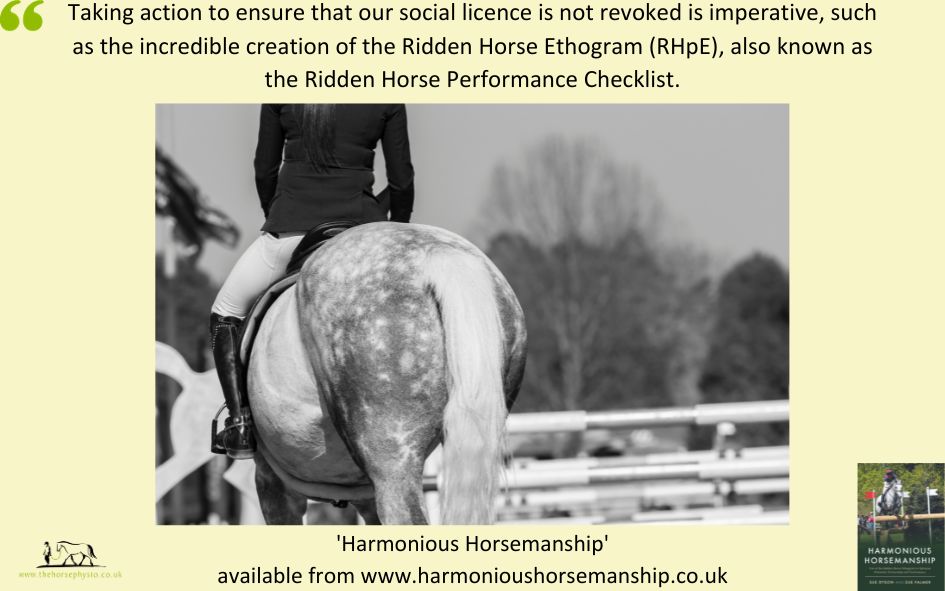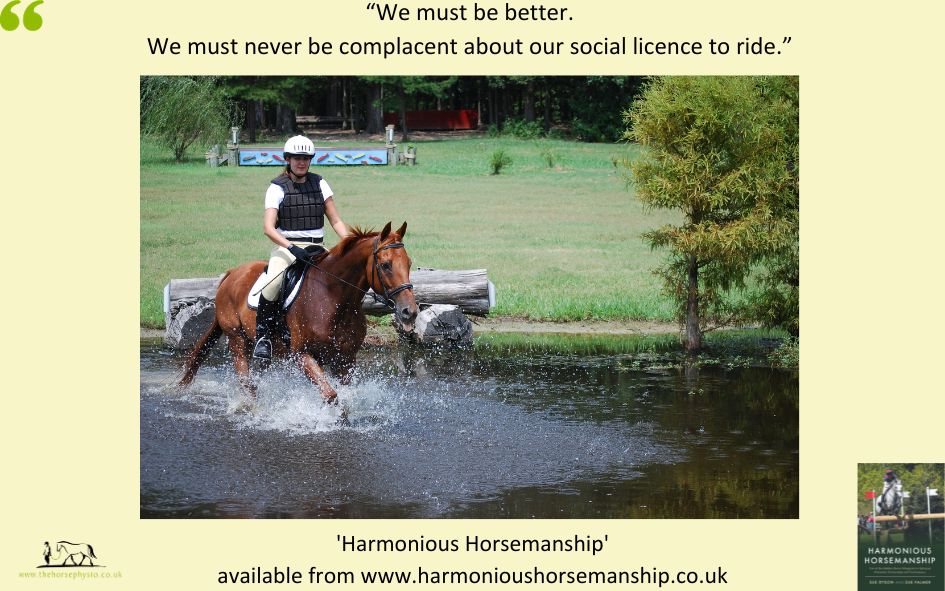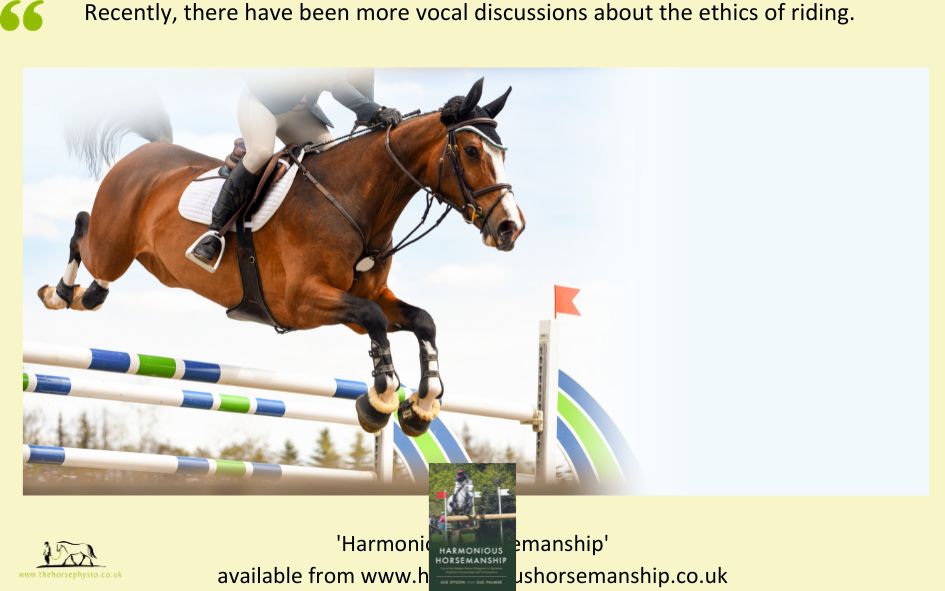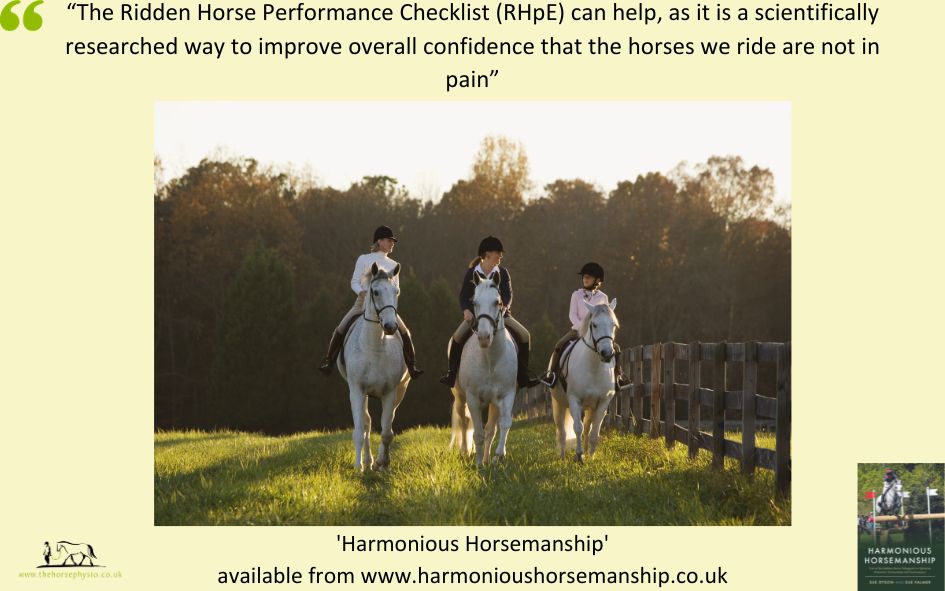What is a social licence?
A social licence refers to the level of approval a community gives to an industry or project. It is commonly used within the climate change movement, with fossil fuel companies losing their social licence through their actions. Whilst it is often used to refer to businesses, it can extend to whole sectors, such as the equestrian world. A social licence is over and above the legal right to operate and refers to a state where a community accepts the behaviour of that industry. Views on what is acceptable change over time, so industries such as the equestrian world must stay focused, as the general public’s views can change. Taking action to ensure that our social licence is not revoked is imperative, such as the incredible creation of the Ridden Horse Ethogram (RHpE), also known as the Ridden Horse Performance Checklist.

How has the general perception of animals being used by people changed?
Historically, horses have been used as resources, as working animals, for transport, and for farming. Over time, they have become leisure animals. Recently, there have been more vocal discussions about the ethics of riding. From the Olympic Pentathlon debacle to the Mark Todd video and endless racing protests, there have been more widely publicised criticisms of riding in general. These vocal outcries, often magnified by the power of social media, affect the foundations of our social licence. They cause people to question the ethics of riding, and indeed, riding was dropped from the Modern Pentathlon after the 2021 incident. Consider the power of social license concerning the use of animals in circuses. During the 1980s, exotic, wild animals were commonly found in circuses, and this was deemed generally acceptable, though campaigns to ban wild animals in circuses had begun in the late 1950s. During the 90s, campaigners brought widespread abuse and substandard care to light, and the social licence declined. By 2002, there was only one elephant in a circus in England. By 2020, the use of wild animals in circuses was banned by the Government. Whilst these changes take time, they do happen.
What can we do to maintain our social licence?
We must be better. We must never be complacent about our social licence to ride. The racing industry has worked hard to publicise the care and attention given to its horses to counteract the negative publicity surrounding racing. As a leisure industry, we must do the same. We must strive to keep our horses in the best possible way, with a good quality of life, and as an industry, we must promote this. Coverage of professional events showing good horsemanship and compassionate, considerate riding is vital to show the good we can do. Horses and the bond between horses and humans is unique. Therapy horses are used with children and adults to incredible results, and the more we share these stories and others like them, the more we show the very best side of our relationship with our horses. The political campaign around the hunting ban was geared at describing riders as upper class and superior; this political campaign permeated the general public’s consciousness and altered opinions. It is more important than ever to ensure that the general public sees riders as respectful and polite.

How can the RHpE help?
The Ridden Horse Performance Checklist (RHpE) can help, as it is a scientifically researched way to improve overall confidence that the horses we ride are not in pain. Using the RHpE, we are helping each horse and showing the world that the equestrian industry is dedicated to ensuring every horse is happy and healthy. Whenever we look at our horse’s behaviour as an opportunity to listen to what they are telling us, rather than simply seeing it as wrong, we take a step in the right direction. The RHpE is vital as it gives us a measured and tested system for checking on the health and happiness of our horses. Most riders and horse owners want to do right by their horses; they want their horses to be happy and pain-free, but this can be challenging. We are still struggling free of the old ways of thinking, of the old attitudes of resorting to violence to get the desired result. The RHpE repeatedly shows that our horses are trying to communicate with us if only we would listen.
What can I do?
It can seem overwhelming to sway the general public’s opinion, but each of us has a part to play. Every interaction you have with the public allows you to share what we are doing for our horses. Every driver that slows down for you, every person who asks if horses like being ridden, and every random conversation is an opportunity for discussion and education. Change begins at home. It begins with you listening to your horse. It starts with you learning about the RHpE and using it to benefit your horse.
To learn more about the RHpE and order your copy of Harmonious Horsemanship, the excellent book by Sue Dyson and Sue Palmer, which explains the RHpE and how to use it, visit the website www.harmonioushorsemanship.co.uk.


